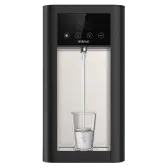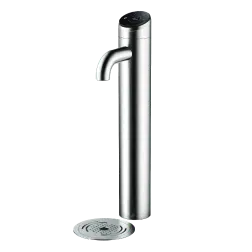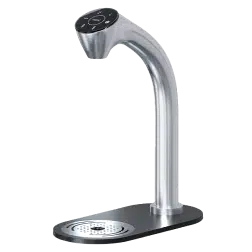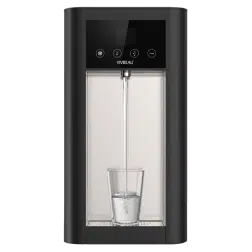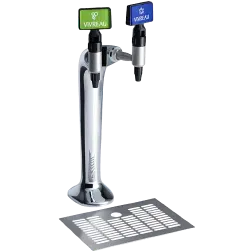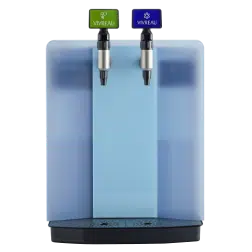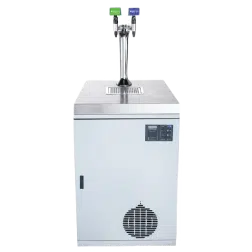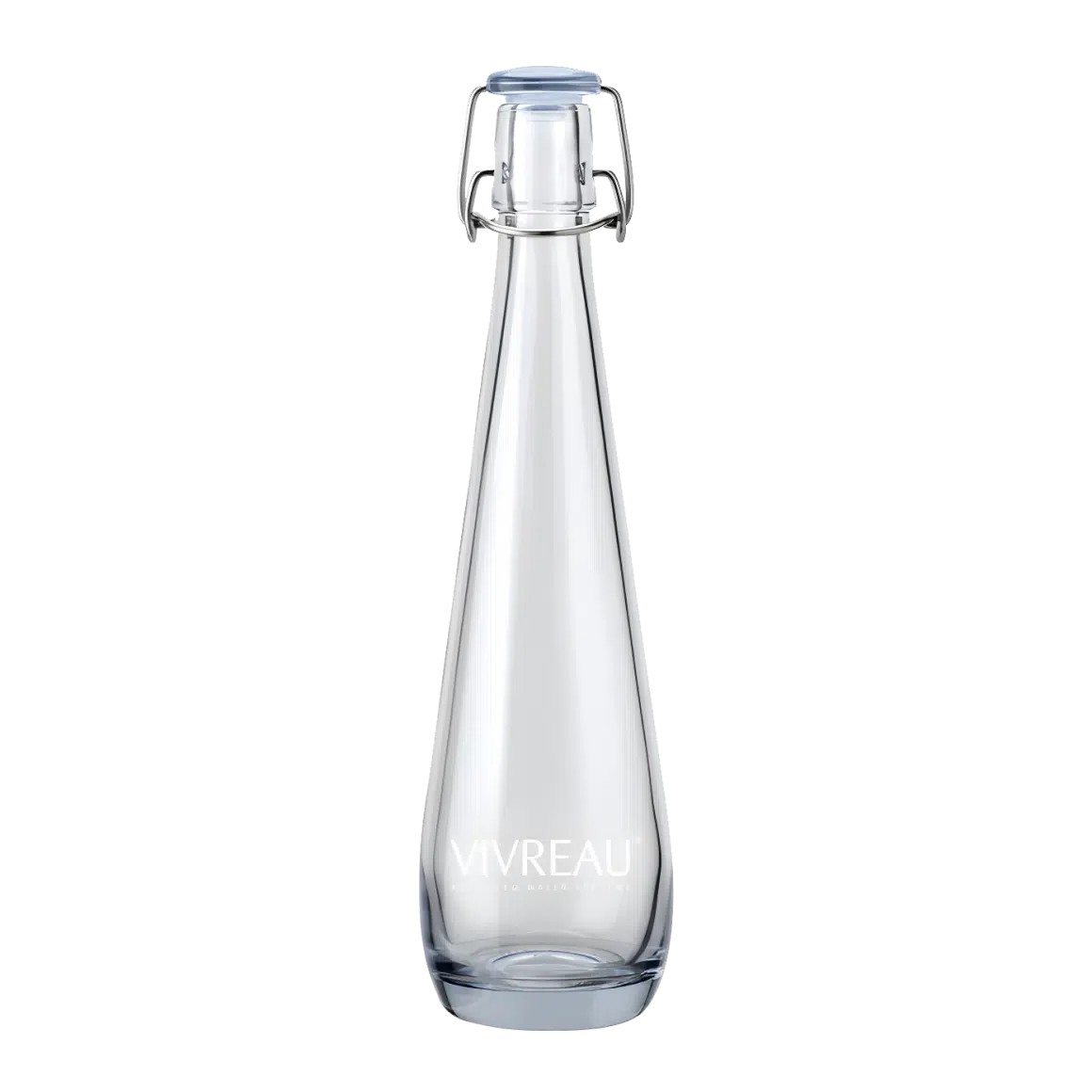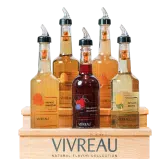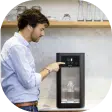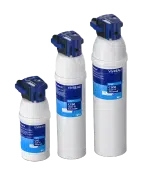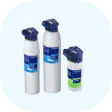Thirsty? You’ve come to the right place!
Have you ever wondered how to elevate your drinking water experience to a whole new level? Many people may not be aware of the diversity in water flavors. However, we can immediately determine weather it ‘s an exceptional experience or one we’d rather never want to repeat, much like the forgotten bottle in your sports bag after weeks.
Our certified water sommelier, Anastasia Chovan, Director of Professional Filter at Vivreau in North America, is here to help and happy to share her secret recipe to unlock the science of water right and to create your perfect cup.
Step #1: Put your chef’s hat on and read the instructions
Before we start, it is important to understand the fundamentals of water science:
Water is a transparent, nearly colorless and (normally) an odorless chemical substance, consisting of two hydrogen atoms bounded to one oxygen atom (H2O).
The taste of water can be profoundly influenced by factors like 1) the geographical source of water, 2) chemical contaminants, 3) biological contamination 4) temperature & seasonality, 5) treatment & distribution processes etc. Through these often uncontrollable and unforeseeable factors, your water can contain a variety of contaminants, ranging from naturally minerals, heavy metals, chemicals to disinfection byproducts.
Substances at a glance:
- Substances from the environment – (e.g. minerals, organic compounds)
- Substances from water treatment – (e.g. chlorine, chloramine, chloride)
- Particles from piping – (e.g. rust, scale)
- Microbes – (e.g. Pseudomonas)
- Residues from pollution – (e.g. organic impurities, pesticides, hormones)
But how do these substances impact
your drinking water experience?
This short Q&A will guide you through your tap water tasting:
My tap water tastes metallic?
Your water may contain metals due to the corrosion of pipelines and plumbing components made from iron, manganese, copper, and lead. Over time, this corrosion can gradually release a variety of metals into your drinking water.
My tap water tastes like chlorine?
Chlorine is a common method of disinfection and used to kill harmful bacteria. Although there are no health risks associated with chlorine, it can often come with a certain taste or smell.
My tap water tastes Bitter?
A high pH level (pH greater than 7) may be responsible for your bitter taste.
My tap water tastes Salty?
Your water probably has a high concentration of chloride caused by seawater, rain-/melted snow-/ and ground water, wastewater etc.
My tap water tastes Sweet?
Your water might be rich in certain minerals like calcium and magnesium.
Step #2: Select the right ingredients
Now that we’ve learned about the fundamentals, It’s time to choose the appropriate ingredients. To do so, we must delve deeper into the following characteristics:
1.Water hardness level: When carbonate hardness is higher than permanent hardness it leads to scale formation in water, a rather undesirable aspect for our perfect cup
2.Ion in water: The most common positively charged ions (cations) found in water are calcium, magnesium, sodium and potassium. The most common negatively charged ions (anions) are hydrogen carbonate, sulphate, nitrate and chloride.
3.pH Value: It’s essential to determine the acidity (pH value of less then 7) or alkalinity (pH greater than 7) of your water by its pH value
To accurately measure the carbonate hardness, you can use one of our Vivreau Temporary Hardness Test kit. Closely observe the color transformation in the vial, striving for a green tint within the range of 3 to 10 drops. For an alkalinity assessment, you will observe a yellow coloration, achieved with a dosage ranging between 2 and 4 drops. These results serve as a crucial guide in selecting the ideal filter with the precise capacity tailored to your specific needs.
Step #3: Get your seasoning right with the appropriate equipment
Once we have determined the characteristics, we can now start seasoning our water according to your taste preferences to get towards your perfect cup:
Step #4: The correct serving for your individual taste
Numerous studies indicate that approximately half of the global population fails to meet the recommended daily intake of water.
By serving water tailored to your individual taste preferences, you can not only boost our daily water consumption because you enjoy drinking it, but also mitigate health risks. Whether you prefer your water hot, iced-cold, sparkling, still, or flavored – the possibilities and options are limitless with the right water and equipment in place.
For our coffee lovers:
Have you ever wondered why coffee in some Coffee Shops has the perfectly balanced flavor while in others it tastes bitter or overly sour, despite using the same beans, brewing methods, or even the same coffee machine?
Most of the time, it’s the water, especially the amount of hydrogen carbonate it holds – often known as buffer capacity or alkalinity.
The more hydrogen carbonate in the water, the less sour the resulting coffee taste. But on the other hand, a lack of sourness can lead to the bitterness and the intensity of the coffee’s roast being perceived as more prominent and dominant which is not everybody’s taste.
So, to create the perfect cup of coffee just the way you like it, you need to find that sweet spot of sourness, bitterness, sweetness, aromas, and body.
And guess what? The secret ingredient lies in using a filtration system that is tailored to the characteristics of your local tap water.
With our expertise in filtration at Vivreau, we’re honored to be the official water sponsor for the 2024 World Brewers Cup Championship at the Specialty Coffee Expo in Chicago. With our filtration systems, we’re committed to ensuring that every cup of coffee is perfect!
Need any advice?
Our team of water experts is always available to assist you with questions, tips, and recommendations for your ultimate and best drinking water experience.
